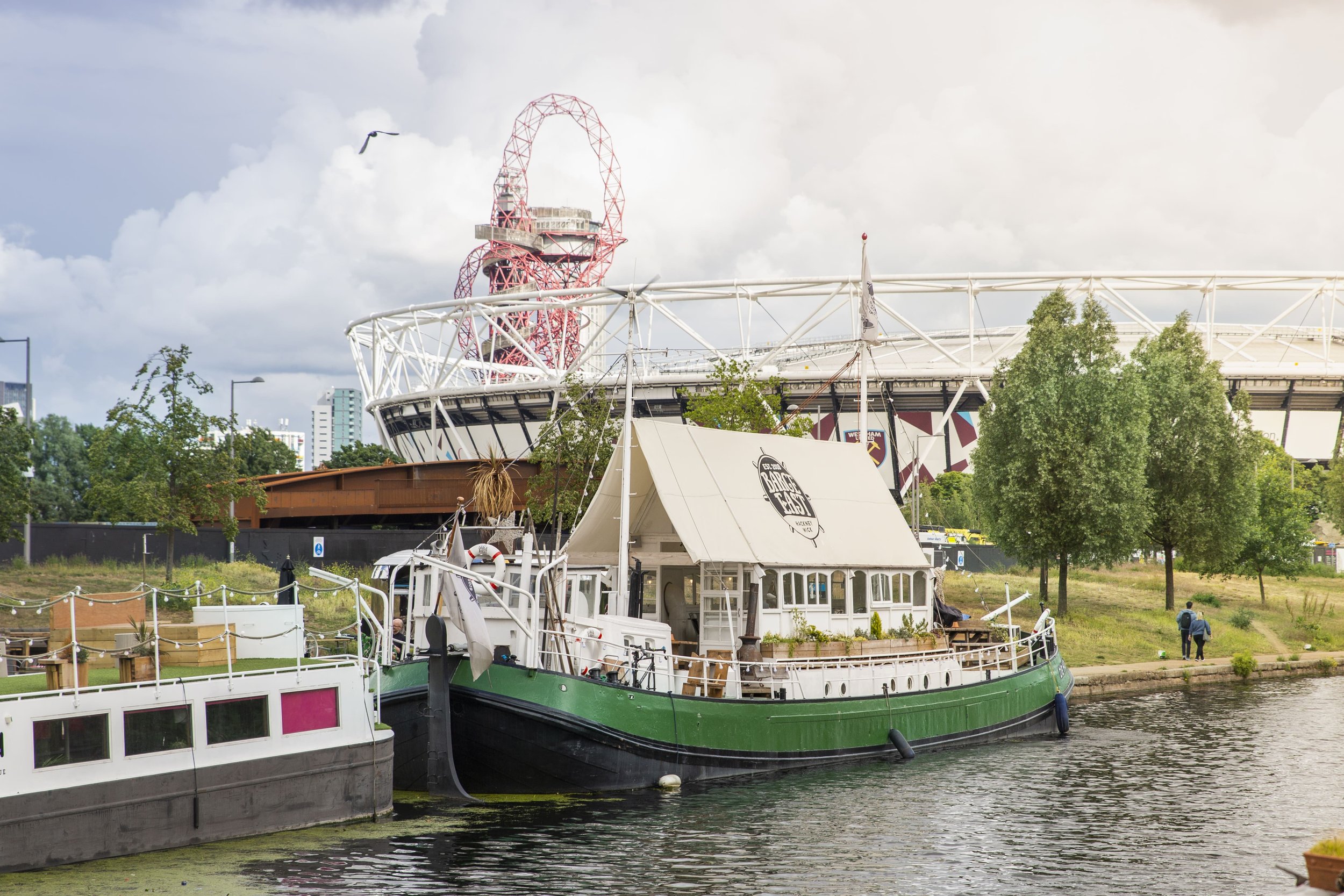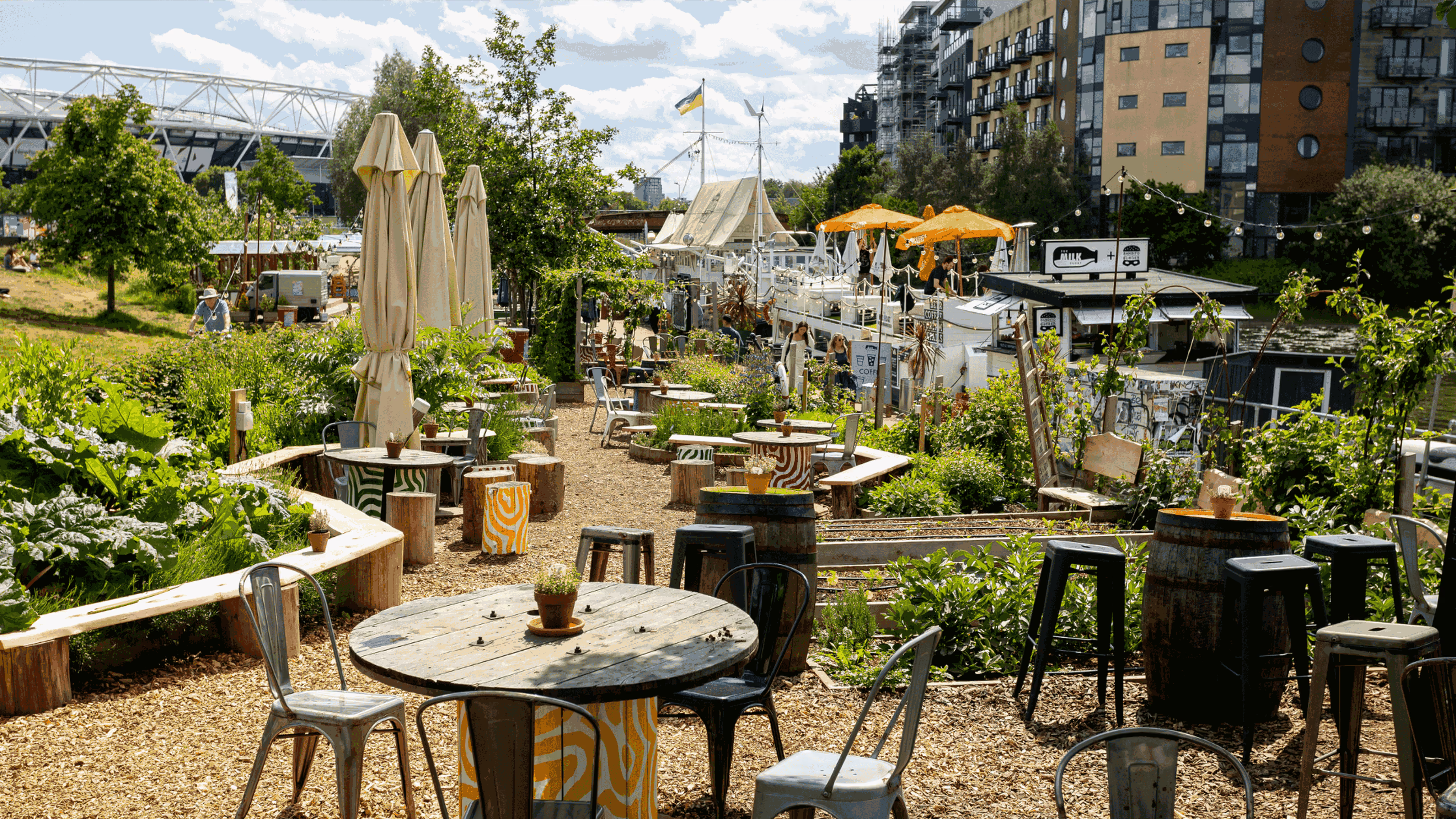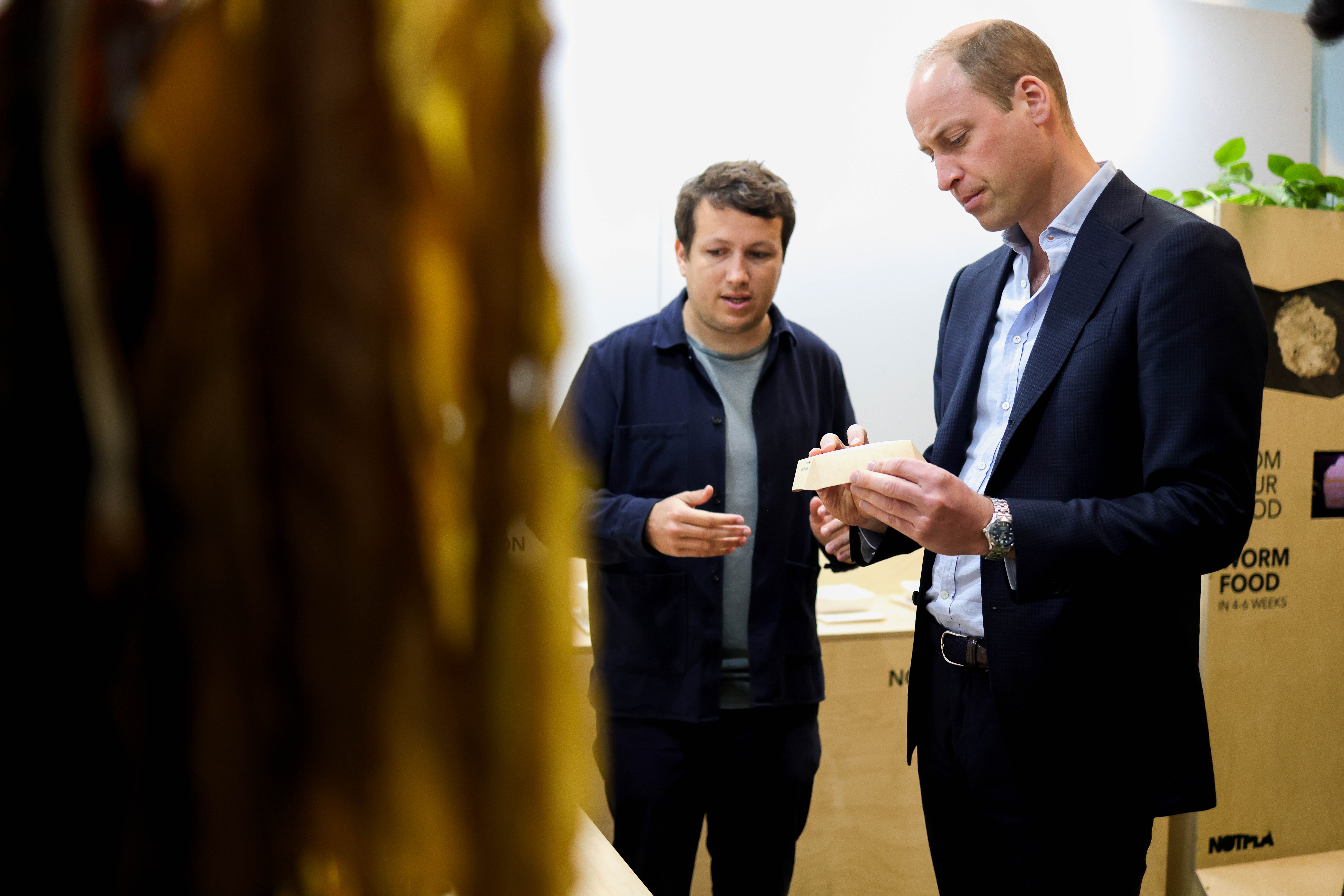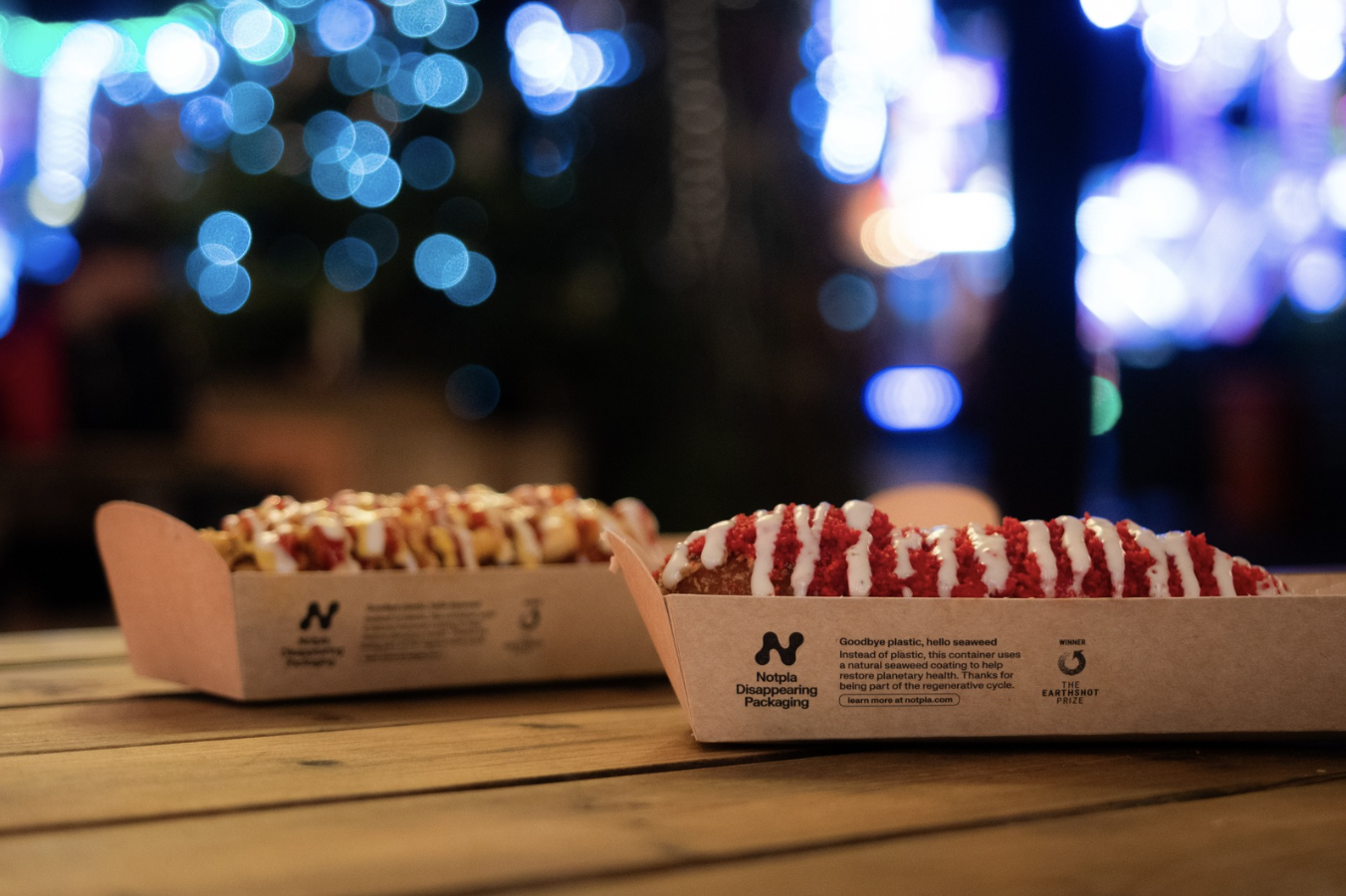
.jpg)
Moored along the canals of Hackney Wick, Barge East is a leading example of what sustainable hospitality can look like. What began as a 125-year-old grain barge destined for the scrapyard is now one of London’s most forward-thinking independent restaurants, led by three founders committed to creativity, community, and climate action.
In this interview, we meet Blandy - one of Barge East’s co-founders - to hear how a historic Dutch barge became a modern culinary destination, how homegrown ingredients help cut emissions, and why partnering with Notpla made perfect sense for a business rooted in reuse and regeneration.
Tell us a little about yourself and Barge East?
My name is Blandy, I'm one of the co-founders of Barge East. Barge East was set up by three of us, Tomo, Ryan and myself. We put an idea on paper, presented it, to the Olympic Park and the Canal River Trust and they liked our idea. And then we were like, right, we need to find a boat. Our search took us to Holland. We found the hoop. The barge is 125 years old, previously a grain carrying barge destined for the scrapyard. We bought her and sailed her back over. Spent five, six months renovating her and eventually opened in June 2018.
How would you describe your approach to sustainability and why is it important?
Originally we started with just the barge. The terrace was phase two and the garden was phase three. Sustainability is a big part of everything that we do here at Barge East. A lot of the materials are reclaimed. The booths at the back, they are the old planters from the 2012 Olympic Games. So there's a bit of a homage there to the Olympics with the London Stadium in the background.

What would you say is the one thing that Barge East is trying to do differently over other restaurants when it comes to sustainability?
A lot of our suppliers are local to us. Our beers are from East London. We grow hops in the garden every year that we harvest and then we give them to a local brewery. With the products that we've got in the garden like the edible flowers, we’re trying to reduce our need on suppliers because otherwise they'd been transported in a diesel van in a plastic box. Having that there helps reduce our need on those supplies.
We’re neighbours here in Hackney Wick - but what drew you to work with Notpla?
We first became aware of Notpla after they won the Earthshot Prize in 2022. Prince William visited Hackney Wick and we thought that's a great brand. It fits in with our values, we need to use them. When you've got a local supplier who's also very sustainable, they go hand in hand.

What was the single biggest draw to using Notpla and what did you switch from using before then?
A lot of packaging now is quite misleading in that they say compostable but it's actually only commercially compostable. We don't have that facility on site. Notpla’s packaging can go straight into our compost bins, and eventually it can be reused on the garden which closes the loop.
What does it mean to you to be called a 'Sustainability Legend'?
To be a sustainability legend is important to us because customers now are a lot more conscious of where they're dining. They want to eat in places that they know are socially responsible. So to get that seal of approval from Knopfler in relation to our packaging is great.
Why Small Steps Matter in Sustainable Foodservice
Barge East shows that sustainability is a series of thoughtful decisions made every day. From growing their own hops and edible flowers to choosing packaging that genuinely composts, Blandy and the team are proving that small changes can drive big impact.
At Notpla, we’re proud to partner with pioneers like Barge East - independent businesses building a better future, one conscious choice at a time.
Want to join the movement? Become part of Notpla’s Sustainability Legends - our programme celebrating foodservice leaders raising the bar for sustainable dining.
%20(1).avif) From student idea to sustainable solution: Earthshot Prize-winner Notpla returns to Imperial College London
From student idea to sustainable solution: Earthshot Prize-winner Notpla returns to Imperial College London How Peppermint and Notpla redefined sustainability at Winter Wonderland
How Peppermint and Notpla redefined sustainability at Winter Wonderland.avif) Wembley Stadium partners with Notpla and Delaware North to advance sustainable packaging in live music
Wembley Stadium partners with Notpla and Delaware North to advance sustainable packaging in live music